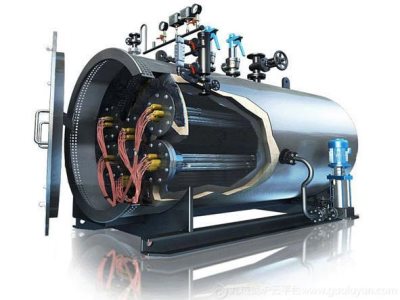10th
Never measure the height of a mountain, until you have reached the top. Then you will see how low it was. --Dag Hammar
Never measure the height of a mountain, until you have reached the top. Then you will see how low it was. --Dag Hammarskjöld
What the 9th house envisions, the 10th house brings to earth. In Quadrant systems of house-division, the Midheaven – the degree of the ecliptic which reaches its highest point at the meridian of any place – marks the cusp of the 10th house. The Midheaven is the most elevated point in the chart, and symbolically speaking, placements here ‘stand out’ above all others in the horoscope. The qualities of any sign or planet in this position correspond to what in us is most visible and accessible to others, what ‘stands out’ in us. Whereas the IC and 4th house (the opposite house) represent what we are like privately and how we behave at home behind closed doors, the MC and 10th house (naturally associated with Saturn and Capricorn) indicate the way we behave publicly, the image we wish to present to the world – the kinds of clothes we don when we ‘step out’. Liz Greene calls the MC and 10th house our ‘social shorthand’ – how we would most like to be seen by others and how we describe ourselves to them.
In keeping with the elevated position of the Midheaven, placements in this area of the chart suggest those qualities for which we want to be admired, lauded, looked up to and respected. It is through the signs and planets here that we hope to attain achievement, honour and recognition. Placements in the 10th denote what we would most like to be remembered as having contributed to the world. This is the house of ambition, behind which lurks the pressing urge and compulsion to be esteemed and acknowledged. The ancient Greeks believed that if you performed a truly noble or heroic deed, you were rewarded by being made a constellation in the heavens for all to see for all eternity. Besides the recognition it earns us, being famous means we live in people’s minds forever. The isolated ego, so fearful of its own finiteness, finds this idea very reassuring.
The nature of our contribution to society and our status and place in the world are shown by the sign on the Midheaven, planets in the 10th house, and as the Gauquelin studies suggest (see page 95) any planets on the 9th house side of the MC. The planet ruling the sign on the Midheaven and its placement by sign, house and aspect also sheds light on career and vocation. However, other areas of the chart also have considerable bearing on the issue of profession (such as the 6th house, 2nd house, aspects to the Sun, etc.), and the birth map as a whole must be carefully assessed to advise anyone wisely in this respect.
In some cases, the signs and planets in the 10th and on the 9th house side of the Midheaven may literally describe the nature of the individual’s career. For instance, Saturn there could indicate a teacher, judge or scientist; Jupiter an actor, philosopher or travel agent; and the Moon a professional childminder or innkeeper. Franz Schubert, the Austrian composer, had musical Pisces on the Midheaven, and Neptune, its ruler, in the 5th, the house of creative expression.
Tenth house
However, it is safer to assume that the positions near the MC and in the 10th suggest not so much the actual profession but rather the approach a person has to the career – the manner in which the work is handled or packaged. The judge with Saturn in the 10th will more likely follow the letter of the law than the judge with Uranus there, whose readings would be more individualistic, unconventional, and shocking to others.
The kinds of energies we exhibit or encounter in the pursuit of a vocation are also suggested by placements in the 10th. Saturn or Capricorn there may work long and patiently to reach the top; Mars or Aries is aggressive and impatient in this sphere of life; while Neptune or Pisces may be vague or confused as to its role in society.
The 10th house could also describe what we represent or symbolize to others. Mars might be seen as a bully or the pinnacle of courage and strength; Neptune as a saint or martyr, champion of the downtrodden, or the victim himself; and Venus could symbolize the epitome of style, taste or beauty.
If the 4th house is associated with the father, then the 10th house is assigned to the mother. In the beginning of life, she is the whole world to us. Early bonding patterns established with her will be reflected later in life in how we relate to the external world in general. In other words, the nature of what passes between mother and child (as shown by the MC and placements in the 10th) resurfaces at a later stage of development as our way of connecting with society and the world ‘out there’ as a whole. If we found mother threatening and potentially destructive (such as a difficultly aspected Pluto in the 10th might suggest) then later on the world will seem an unsafe place and we will attempt to defend ourselves accordingly. If mother was experienced as supportive and helpful (well-aspected placements in the 10th), we carry an expectation that the world will treat us similarly – what Erik Erikson calls basic trust.
If we associate the 10th house with both mother (the shaping parent) and career, then the choice of vocation may somehow be influenced by our experience of her. For instance, if Mars is in the 10th the mother may have been experienced as pushy and assertive. The child, therefore, harbours resentment and anger against her, and grows up with the desire to actualize a position of power and autonomy in the world so he or she won’t be ‘pushed around’ in the same way as in early life. Fighting with the mother creates a pattern of fighting with the world.
Sometimes it is the desire to win love from the mother (thereby ensuring our survival) which underlies our choice of profession. For example, if Mercury is in the 10th house, the mother may have been experienced as expressive and intelligent. The child then feels that this is what Mother values and appreciates, and so strives to gain her love and support by developing such traits. An expectation is established that excelling in this way earns recognition, and accordingly, later in life, a career is sought which brings Mercurial qualities to the fore.
In some cases, it may be competition with the mother which nudges us in the direction of a certain career. If Venus is in the 10th, the mother may have been seen as glamorous and beautiful. In a sense, Venus has been projected onto the mother. In order to reclaim his or her own Venusian qualities, the child may later seek a profession in which he or she can be admired as beautiful, elegant or tasteful.
At its most simple, the 10th house describes those qualities of the mother (or parent in question) which are in us as well, whether we like it or not. The issue is complicated, however, by the possibility that placements in the 10th often denote aspects of the mother’s personality which were ‘unlived’ – attributes and traits which the mother did not consciously express or represent in the child’s growing-up years. Planets and signs in this house may describe the way the mother would have liked to have been if only she had allowed herself the opportunity to do so. A child who is acutely sensitive to the mother’s psyche and undercurrents in the home atmosphere will be receptive not only to what she manifests outwardly but also to what she is denying or suppressing. The child may be swayed to ‘live out’ the mother’s shadow side, as if mother is made more whole or redeemed in this way. The mother of a child with Uranus in the 10th, for instance, may have appeared extremely conventional, strait-laced and restrained on the outside, while under the surface lurked explosive feelings and the desire for space, freedom and ‘busting loose’. In some way this unvented Uranian side is communicated to the child, who grows up with a compulsion to enact just those qualities to which the mother has not allowed expression.
The placement of many planets in the 10th usually suggests someone who is ambitious and desirous of recognition, status and prestige. Men are normally given more permission to pursue these needs than women. It may be easier for a woman with a strong 10th house to seek a partner who is powerful or famous and thereby import a position in the world in that way. She may even be the one who pushes him on to fame and prestige. Ultimately, however, she may feel resentful that it is her husband receiving the acclaim rather than herself, and consciously or unconsciously devise ways of punishing him for this. Likewise, either or both parents with a strong 10th house may displace unfulfilled achievement and recognition needs onto a child. Some children may co-operate with the projection, while others may rebel against it, often becoming the exact opposite of what the parent(s) hoped.
The 10th house extends beyond the mother or shaping parent to designate our relationship with authority figures in general. Early anger or hurt at being suppressed or mistreated by a parent will often distort the reality of later interactions with other symbols of power. The revolutionary may have a true and just cause, but the style, manner or intensity in which he or she espouses convictions may evince, from a reductionist point of view, the contamination of earlier issues stemming from the regime of the parents. This is not to belittle or judge those who object to that which is unfair in society, but they are well-advised to consider their 10th house and its psychological implications. Throwing a punch at one’s boss or eggs at the prime minister is a way of venting the ‘angry child’ in us but may not be the most effective way to promote even the most needed changes.
Presiding over the top of the chart, the 10th house signifies the fulfilment of the individual personality through the personal satisfaction gained in using our abilities and talents to serve and influence society. Some may even earn applause and public recognition of their great value and worth.
A long way has been travelled from the 1st house to the 10th. In the 1st, we were not even conscious of ourselves as separate entities, not even aware of our own individual existence. By the time the 10th is reached, however, we have developed and ‘incarnated’ sufficiently not only to have a more solid and concrete sense of who we are, but also to be held in esteem for it.




